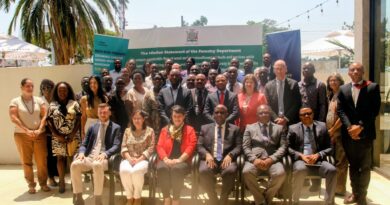Human Rights Commission Calls on Mining Sector to Prioritise Citizens’ Grievances
The Human Rights Commission of Zambia has called on companies, particularly in the mining sector, to establish accessible grievance mechanisms for citizens and workers.
The appeal was made during a mining indaba hosted in Lufwanyama by Caritas Zambia, Transparency International Zambia, and the Centre for Environmental Justice, with support from ActionAid and the Carter Centre Foundation. The event was held under the theme Mining with the People, for the People: Reclaiming Local Benefits in Lufwanyama.
Speaking at a panel discussion, Human Rights Commission Research and Mechanism Manager, Lisbon Chaamwe, highlighted that the Human Rights Act provides the Commission with powers to monitor compliance, forming a crucial entry point for safeguarding citizens’ rights.
Chaamwe explained that Zambia incorporated provisions on business and human rights into its legal framework in 2011, based on three key pillars.
The first pillar requires the government to protect citizens’ rights in all business and development activities. Authorities must listen to concerns raised by the public, with regulations enforced by empowered institutions such as the Mines Safety Department and the Zambia Environmental Management Agency.
The second pillar focuses on corporate responsibility. Companies must respect citizens’ rights and avoid actions that interfere with daily life, even when holding licences. Chaamwe stressed the importance of human rights due diligence, including assessing risks such as blasting hazards and pollution, and implementing preventive measures.
He added that grievance mechanisms must be accessible, noting that offices located inside fenced areas often restrict public access.
The third pillar requires avenues for complaints, both judicial and non-judicial. Chaamwe said the Commission, in collaboration with the Ministry of Justice, is working on a National Action Plan on Business and Human Rights. Citizens are encouraged to report unresolved issues to the Commission via 8181.
“Many companies receive international funding. If human rights violations are reported, funding may be withdrawn,” Chaamwe warned, emphasising the importance of community engagement and reporting.
He further encouraged citizens to participate in awareness campaigns and sensitisation programmes to understand their rights. Chaamwe cautioned that if grievances go unreported, interventions become challenging.
Highlighting corporate social responsibility, Chaamwe clarified that such initiatives are not legally binding. Instead, he stressed that taxes paid by companies should benefit local communities, citing concerns in Lufwanyama where only five percent of funds translated into a nominal amount of 57,000 kwacha.



